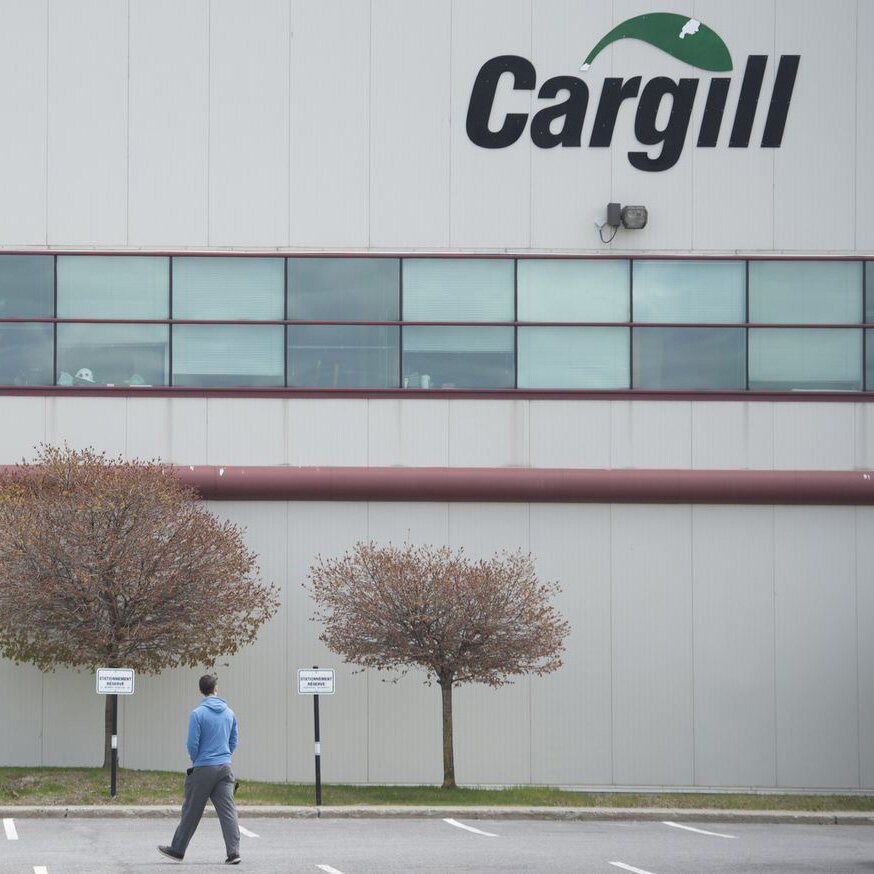The latest stories on the pandemic’s impact on the food industry
Canada’s food processing industry has become among the most dangerous places to work during the pandemic. Food production workers need your support.

'Chaotic and crazy': meat plants around the world struggle with virus outbreaks
Source: The Guardian
May 13, 2020 - Critics warn of workers tightly packed together and pressure to keep operating at maximum speed
Outbreaks of Covid-19 at slaughterhouses are occurring in a number of countries around the world, in a development that may have long-term implications for food supply systems, say experts.

No details on fund to stop COVID-19 in meat plants
Source: Toronto.com
Ottawa, May 11, 2020 — Tens of millions of federal dollars aimed at helping food processors deal with a rash of COVID-19 outbreaks might not move until the end of September, and there are no details about what the requirements will be to qualify.
The $77.5-million Emergency Processing Fund Prime Minister Justin Trudeau announced last week is intended to help food processors adapt to COVID-19 protocols, including gaining access to more protective equipment for workers.

3rd death linked to Canada's largest COVID-19 outbreak at Alberta slaughterhouse
Source: CBC News
May 11, 2020 - More than 1,500 cases are linked to the outbreak at Cargill near High River
A third death has been linked to the COVID-19 outbreak at a Cargill meat-processing plant near High River in southern Alberta, which is the largest tied to a single location in Canada.

Cargill shuts down Quebec plant after 64 workers test positive for COVID-19
Source: The Globe & Mail
May 11, 2020 - Cargill Ltd. is suspending operations at its meat-packing plant near Montreal after more than 10 per cent of its work force tested positive for COVID-19, marking the company’s second shutdown in Canada because of the novel coronavirus.

Food inspectors could face sanctions if they refuse reassignment to COVID-19-infected meat plants, union told
Source: CBC News
May 11, 2020 - CFIA also hired 90 'emergency' inspectors, veterinarians to cope with virus's impact
The union representing Canada's food inspectors says Ottawa is threatening disciplinary action against employees who refuse to be reassigned to work at COVID-19-infected meat plants.

Asymptomatic testing centre set up in Brooks as 7% of city's population tests positive for COVID-19
Source: CBC News
May 9, 2020 - An outbreak at a nearby slaughterhouse, which has remained open, is linked to hundreds of cases
Provincial health officials will open a temporary second centre to test for COVID-19 in the southern Alberta city of Brooks, as an outbreak connected to a nearby slaughterhouse continues to grow.the southern Alberta city of Brooks, as an outbreak connected to a nearby slaughterhouse continues to grow.

Inside the slaughterhouse
Source: CBC News
May 6, 2020 - North America’s largest single coronavirus outbreak started at this Alberta meat-packing plant. Take a look within.
Hiep Bui spent 23 years at the Cargill meat-packing plant in southern Alberta — picking out bones from ground beef in a refrigerated room. The 67-year-old was one of around 2,000 workers at the plant, located near the town of High River, south of Calgary.

Ottawa earmarks $77-million to protect meat plant workers, but union says it misses mark
Source: The Globe & Mail
Ottawa, May 5 2020 - Ottawa is providing $77-million in funding to help slaughterhouses and other food producers outfit their employees with protective gear and adapt their plants to facilitate physical distancing – a move aimed at ensuring workplace safety and a stable food supply.

Handout to food processors misses the mark on worker safety
Invisible Heroes: Press Release
Ottawa, May 5 2020 – The Prime Minister’s announcement today concerning safety in food processing plants completely misses the mark, according to the Agriculture Union which represents federal food inspectors.

Help Protect our Frontline Food Workers
Invisible Heroes
Canada’s food processing industry has become among the most dangerous places to work during the pandemic. In spite of this, these facilities have been slow to equip employees with the personal protective equipment they need to work safely.
